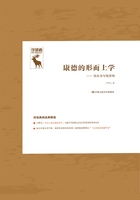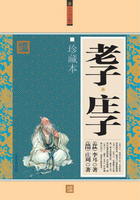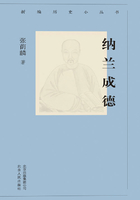In the case,then,of names that are used literally one is bound to answer either simply or by drawing a distinction:the tacit understandings implied in our statements,e.g.in answer to questions that are not put clearly but elliptically—it is upon this that the consequent refutation depends.For example,”Is what belongs to Athenians the property of Athenians?” Yes.”And so it is likewise in other cases.But observe; man belongs to the animal kingdom,doesn”t he?” Yes.”Then man is the property of the animal kingdom.” But this is a fallacy:for we say that man ”belongs to”
the animal kingdom because he is an animal,just as we say that Lysander ”belongs to” the Spartans,because he is a Spartan.It is evident,then,that where the premiss put forward is not clear,one must not grant it simply.
Whenever of two things it is generally thought that if the one is true the other is true of necessity,whereas,if the other is true,the first is not true of necessity,one should,if asked which of them is true,grant the smaller one:for the larger the number of premisses,the harder it is to draw a conclusion from them.If,again,the sophist tries to secure that has a contrary while B has not,suppose what he says is true,you should say that each has a contrary,only for the one there is no established name.
Since,again,in regard to some of the views they express,most people would say that any one who did not admit them was telling a falsehood,while they would not say this in regard to some,e.g.to any matters whereon opinion is divided (for most people have no distinct view whether the soul of animals is destructible or immortal),accordingly (1) it is uncertain in which of two senses the premiss proposed is usually meant—whether as maxims are (for people call by the name of ”maxims” both true opinions and general assertions) or like the doctrine ”the diagonal of a square is incommensurate with its side”:and moreover (2) whenever opinions are divided as to the truth,we then have subjects of which it is very easy to change the terminology undetected.For because of the uncertainty in which of the two senses the premiss contains the truth,one will not be thought to be playing any trick,while because of the division of opinion,one will not be thought to be telling a falsehood.Change the terminology therefore,for the change will make the position irrefutable.
Moreover,whenever one foresees any question coming,one should put in one”s objection and have one”s say beforehand:for by doing so one is likely to embarrass the questioner most effectually.
Inasmuch as a proper solution is an exposure of false reasoning,showing on what kind of question the falsity depends,and whereas ”false reasoning” has a double meaning—for it is used either if a false conclusion has been proved,or if there is only an apparent proof and no real one—there must be both the kind of solution just described,” and also the correction of a merely apparent proof,so as to show upon which of the questions the appearance depends.Thus it comes about that one solves arguments that are properly reasoned by demolishing them,whereas one solves merely apparent arguments by drawing distinctions.Again,inasmuch as of arguments that are properly reasoned some have a true and others a false conclusion,those that are false in respect of their conclusion it is possible to solve in two ways; for it is possible both by demolishing one of the premisses asked,and by showing that the conclusion is not the real state of the case:those,on the other hand,that are false in respect of the premisses can be solved only by a demolition of one of them; for the conclusion is true.So that those who wish to solve an argument should in the first place look and see if it is properly reasoned,or is unreasoned; and next,whether the conclusion be true or false,in order that we may effect the solution either by drawing some distinction or by demolishing something,and demolishing it either in this way or in that,as was laid down before.There is a very great deal of difference between solving an argument when being subjected to questions and when not:for to foresee traps is difficult,whereas to see them at one”s leisure is easier.
Of the refutations,then,that depend upon ambiguity and amphiboly some contain some question with more than one meaning,while others contain a conclusion bearing a number of senses:e.g.in the proof that ”speaking of the silent” is possible,the conclusion has a double meaning,while in the proof that ”he who knows does not understand what he knows” one of the questions contains an amphiboly.Also the double—edged saying is true in one context but not in another:it means something that is and something that is not.
Whenever,then,the many senses lie in the conclusion no refutation takes place unless the sophist secures as well the contradiction of the conclusion he means to prove; e.g.in the proof that ”seeing of the blind” is possible:for without the contradiction there was no refutation.Whenever,on the other hand,the many senses lie in the questions,there is no necessity to begin by denying the double—edged premiss:for this was not the goal of the argument but only its support.At the start,then,one should reply with regard to an ambiguity,whether of a term or of a phrase,in this manner,that ”in one sense it is so,and in another not so”,as e.g.that ”speaking of the silent” is in one sense possible but in another not possible:also that in one sense ”one should do what must needs be done”,but not in another:for ”what must needs be”
bears a number of senses.If,however,the ambiguity escapes one,one should correct it at the end by making an addition to the question:”Is speaking of the silent possible?”No,but to speak of while he is silent is possible.” Also,in cases which contain the ambiguity in their premisses,one should reply in like manner:”Do people—then not understand what they know?"Yes,but not those who know it in the manner described”:for it is not the same thing to say that ”those who know cannot understand what they know”,and to say that ”those who know something in this particular manner cannot do so”.In general,too,even though he draws his conclusion in a quite unambiguous manner,one should contend that what he has negated is not the fact which one has asserted but only its name; and that therefore there is no refutation.















